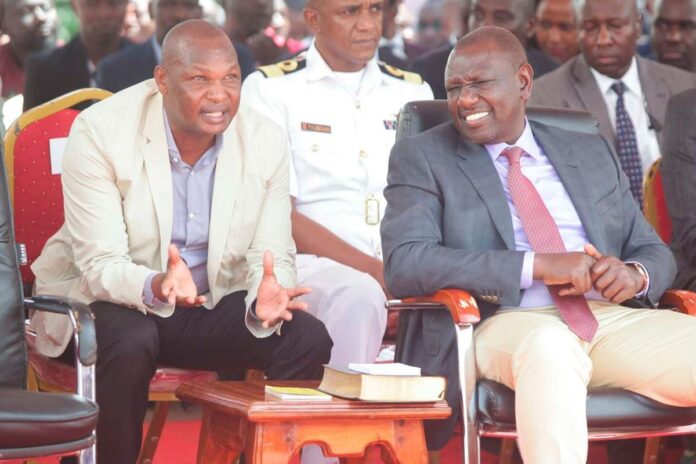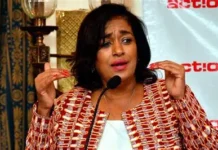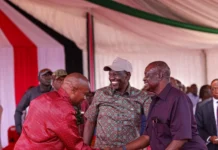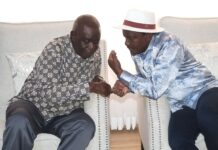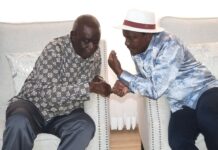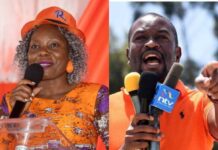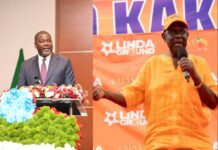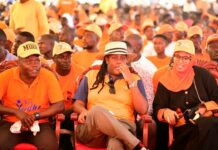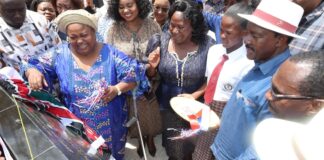Kenya’s political history is dotted with men who, though lacking formal government titles, wield immense power from the shadows.
From Mbiyu Koinange in Jomo Kenyatta’s era to Nicholas Biwott under President Moi, and Nick Wanjohi during Kibaki’s time, every presidency seems to have had its kingmaker.
In the William Ruto administration, that man is Farouk Teigut Kibet. The man who Former Deputy President Rigathi Gachagua calls ‘the President’ is now widely regarded as the most powerful unelected figure in government.
Farouk Kibet is the de facto gatekeeper of State House, the man you must get past to reach the President.
Despite holding no official office, he is present in nearly all high-level government and party functions, meticulously managing operations and controlling access to the Head of State.
Political insiders and analysts have described him as “Ruto’s engine room.”
“Farouk’s office is that of the President of Kenya because you can’t access the President if Farouk says no. Even the Deputy President, who is my friend, to reach him Farouk must say yes,” remarked Kiharu MP Ndindi Nyoro.
Unlike Mbiyu Koinange, whose friendship with Jomo Kenyatta began in school, Farouk’s bond with Ruto was forged in the rough terrain of Kenyan politics.
Their paths crossed in 1997 when Ruto ventured into elective politics, running for Eldoret North MP as a fresh-faced YK92 operative. Farouk would later become his aide, and by 2002, Ruto helped him secure nomination as a councillor for Wareng’ ward.
Today, Farouk straddles the line between executive authority and political strategy. He is often seen managing protocol at UDA functions, whispering directions to senior officials, or curating guest lists for the President’s events.
During the UDA National Delegates Convention at Kasarani, Farouk was seen instructing party officials, ensuring everything ran like clockwork.
At a thanksgiving service in Koilel Primary School, Farouk’s backyard, his influence was again on full display.
Hosting former Deputy President Rigathi Gachagua and Speaker Moses Wetang’ula, the former councillor gifted high-grade cows to dignitaries — a symbol of both wealth and political generosity.
Gachagua before the big fall out, himself heaped praise on Farouk, joking that he wished he had “his own Farouk.”
“Farouk planned almost everything — from our helicopters, breakfast, to hospitality. If he was firm, it was to ensure perfection,” Gachagua admitted.
Farouk’s influence mirrors that of Kibaki’s Nick Wanjohi, Moi’s Nicholas Biwott, and even Joshua Kulei, a personal aide who handled Moi’s business interests.
Like them, Farouk controls more than just logistics; he shapes political narratives, influences appointments, and acts as a sounding board for the President.
His grip is not without critics. Saboti MP Caleb Amisi recently accused Farouk of upstaging elected leaders in Western Kenya, branding him an unelected power broker.
Amisi questioned the source of Farouk’s financial muscle and warned that Western voters were not blind to such maneuverings.
Yet for all the criticism, Farouk remains a deeply religious and charitable figure.
Known for his staunch Christian beliefs, he has supported over 100 churches in the Rift Valley through fundraising.
His community remembers him as a boy from Kapkechui village, Chepsaita, where he attended Chepkemel Primary School before pursuing private education and political activism in Eldoret.
Even as President Ruto’s administration navigates political turbulence, Farouk remains unshaken, always one step behind — or ahead — of the President.
His story echoes a familiar pattern in Kenyan statecraft: the rise of the invisible hand.
As former Majority Leader Aden Duale once quipped, “Farouk is the engine among us.”









